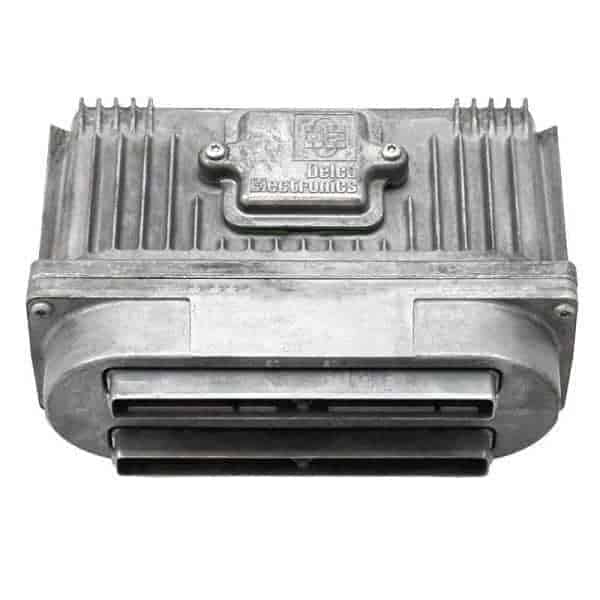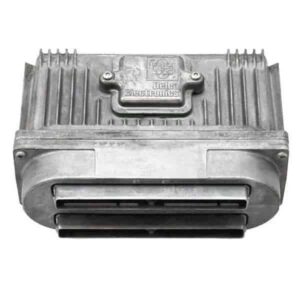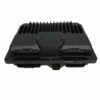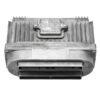If you’re dealing with a 1996 GM vehicle that’s suddenly stalling, refusing to start, or running rough, the problem often points directly to a failing Powertrain Control Module (PCM). As an experienced technician, I’ve seen firsthand how a faulty PCM can cause a cascade of frustrating and hard-to-diagnose issues. This isn’t just a part; it’s the central computer for your engine and transmission, and when it fails, your vehicle’s reliability disappears. This listing is for a replacement PCM, part number 16211539, that provides a direct, reliable solution.
The biggest hurdle with PCM replacement has always been the programming. Historically, you’d have to buy the part, install it, and then have your vehicle towed to a dealership for expensive flashing. We eliminate that entire step. By providing your Vehicle Identification Number (VIN) after purchase, you will receive a 1996 GM PCM that is fully programmed with the latest factory software from General Motors. It arrives ready for installation, saving you significant time, money, and hassle.
From the Diagnostic Bay: The Ghost in the Machine
I remember a 1996 Buick LeSabre that came into the shop on a tow truck. The owner was at his wit’s end. The car would run fine for a week, then suddenly die at a stoplight and refuse to restart for hours. Other times, the transmission would shift erratically. He’d already replaced the battery, alternator, and crank sensor with no luck. After connecting my scan tool, I saw the tell-tale sign: a P0601 ‘Internal Control Module Memory Check Sum Error’ code. The PCM’s internal memory was corrupted. We installed a pre-programmed module just like this one, and the car ran perfectly. It’s a classic example of how a failing 1996 GM PCM can mimic other component failures, making a direct, quality replacement the only true fix.
Is Your GM Vehicle Showing These Signs?
A failing PCM can manifest in many ways. If you’re experiencing any of the following, a faulty engine computer is a likely culprit:
- ✔ Unexplained stalling or engine cutting out while driving
- ✔ Complete no-start condition where the engine cranks but won’t fire up
- ✔ Check Engine Light is illuminated with codes like P0601, P0603, or P0605
- ✔ Noticeable decrease in fuel economy
- ✔ Harsh or erratic automatic transmission shifting
- ✔ Intermittent electrical issues that seem to have no source
A Straightforward Guide to Installation
Replacing the PCM on these 1996 GM vehicles is a job most DIY enthusiasts can handle in their own driveway. Follow these general steps for a successful installation.
- Safety First: Always disconnect the negative terminal from your vehicle’s battery and secure it away from the post to prevent any accidental power surges.
- Locate the PCM: On most of these models, the PCM is located in the engine bay, often inside the air filter box housing for protection. You may need to remove the air filter assembly to access it.
- Disconnect the Connectors: Carefully unlatch and remove the large electrical harness connectors from the old PCM. Inspect them for any corrosion or damage before proceeding.
- Remove the Old Module: Unbolt the PCM from its mounting bracket or housing. It’s typically held in by a few small bolts or clips.
- Install the New PCM: Mount your new, pre-programmed PCM in place of the old one and secure it. Reconnect the electrical harnesses, ensuring they click securely into place.
- Reconnect the Battery: Reattach the negative battery terminal. The vehicle is now ready to start. A security relearn procedure may be required on some models, which typically involves turning the key to the ‘ON’ position for 10-15 minutes.
Verified Compatibility for Your 1996 GM Vehicle
This module, part number 16211539, is the correct replacement for a wide range of popular 1996 General Motors cars and vans. It is also a direct replacement for service numbers 88963800 and 16231853. Please confirm your vehicle is on the list below:
- Achieva (3.1L)
- Beretta (3.1L)
- Bonneville (3.8L)
- Century (3.1L)
- Ciera (3.1L)
- Corsica (3.1L)
- Cutlass (3.1L & 3.4L)
- Eighty Eight (3.8L)
- Grand Am (3.1L)
- Grand Prix
- LeSabre (3.8L)
- Lumina Car (3.1L & 3.4L)
- Lumina Van (3.4L)
- Monte Carlo
- Ninety Eight (3.8L)
- Park Avenue (3.8L)
- Regal
- Riviera (3.8L)
- Silhouette (3.4L)
- Skylark (3.1L)
- Trans Sport (3.4L)
By solving the core electrical problem with a reliable, correctly programmed 1996 GM PCM, you can restore your vehicle’s performance and dependability for years to come.
What is a PCM and what does it do?
What is a PCM and what does it do?
The Powertrain Control Module (PCM) is your vehicle’s main computer. It controls all aspects of engine and transmission function, such as fuel mixture, ignition timing, and transmission shift points, to ensure optimal performance, fuel economy, and emissions.
Why do you need my VIN?
What is a PCM and what does it do?
The Powertrain Control Module (PCM) is your vehicle’s main computer. It controls all aspects of engine and transmission function, such as fuel mixture, ignition timing, and transmission shift points, to ensure optimal performance, fuel economy, and emissions.
Is this part difficult to install myself?
What is a PCM and what does it do?
The Powertrain Control Module (PCM) is your vehicle’s main computer. It controls all aspects of engine and transmission function, such as fuel mixture, ignition timing, and transmission shift points, to ensure optimal performance, fuel economy, and emissions.
My original part number is 88963800. Will this work?
What is a PCM and what does it do?
The Powertrain Control Module (PCM) is your vehicle’s main computer. It controls all aspects of engine and transmission function, such as fuel mixture, ignition timing, and transmission shift points, to ensure optimal performance, fuel economy, and emissions.
Will this fix my Check Engine Light?
What is a PCM and what does it do?
The Powertrain Control Module (PCM) is your vehicle’s main computer. It controls all aspects of engine and transmission function, such as fuel mixture, ignition timing, and transmission shift points, to ensure optimal performance, fuel economy, and emissions.



